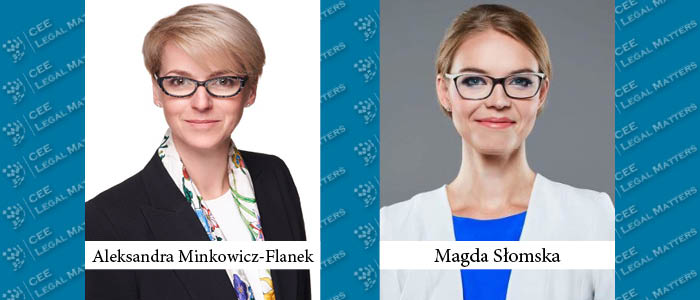New regulations allowing employers to carry out preventive and ad hoc sobriety checks on employees will come into effect on February 21, 2023. Employers will be allowed to start the checks two weeks after they publish relevant regulations in the workplace.
The employer will be obliged to inform employees subject to sobriety enforcement regulations at least two weeks prior to their introduction. It is advisable to prepare appropriate amendments to internal regulations like collective bargaining agreements or work regulations, in advance. Employers with less than fifty employees should draft a suitable announcement.
Until now, in situations involving consumption of alcohol by employees, sobriety checks without employee consent could only be carried out by authorized bodies set up to protect public order (such as the police). Employers could carry out checks in person when employees consented to or explicitly requested such themselves. It is important to remember, however, that up to now, employees have had the right to withdraw their consent to sobriety checks at any time. The regulations only allowed sobriety checks in the context of alcohol consumption but did not allow verification of whether the employee had ingested intoxicants or drugs.
What new solutions do the amendments to the Labor Code bring?
With the new regulations, the employer:
- can directly, independently conduct a preventive check of an employee for the presence of alcohol using non-laboratory methods (breathalyzer test);
- can independently carry out a check for the presence of drugs acting similarly to alcohol in the employee's organism (the list of such drugs is to be established by regulation of the Minister of Health - at this point, the draft includes among others opioids, amphetamine, cocaine);
- may process personal data related to the outcome of the check without the employee's consent;
- has an obligation not to allow the employee to work if the check reveals the presence of an unacceptable level of alcohol or a drug acting similarly to alcohol, or if there is a reasonable suspicion that the employee reported for work in a state of intoxication through alcohol or drug abuse, or drove himself into such a state while at work.
A sobriety check may be carried out by the employer using a device (breathalyzer) that has a valid document confirming its calibration.
Still an employee banned from working by the employer, may request a police officer or other authorized body to conduct an alcohol breath test. The authority will also have the ability to refer an employee for laboratory blood or urine tests in situations defined by law.
Employee sobriety tests may be introduced in the workplace if it is necessary to protect the lives and health of employees or other persons or to protect property. An employee reporting for work under the influence of intoxicants, or consuming such at work, is in gross breach of basic labor obligations and is subject to disciplinary sanction by official warning, reprimand, fine, suspension up to instant dismissal without notice.
The employer may not conduct sobriety checks other than based on rules defined in collective bargaining agreements, work regulations or announcements (which applies to employers with fewer than fifty employees). The law lays down that such checks may be limited only to groups of employees specified in the employer's internal regulations. In addition, the employer must regulate the manner and time in which the tests are to be carried out (e.g., specifying the time of day tests may be carried out for example, before the start of work) and the frequency with which they are to be made (e.g., daily, if the nature of the work requires it - drivers, work at high altitudes, work on the shop floor, etc.).
The new regulation also provides for the mandatory analogous application of the provisions on sobriety checks to persons employed on a basis other than employment contracts (contracts of mandate or for specified work, or self-employed natural persons cooperating with employers on a b2b contract basis).
By Aleksandra Minkowicz-Flanek, Partner and Magda Słomska, Counsel, Dentons
